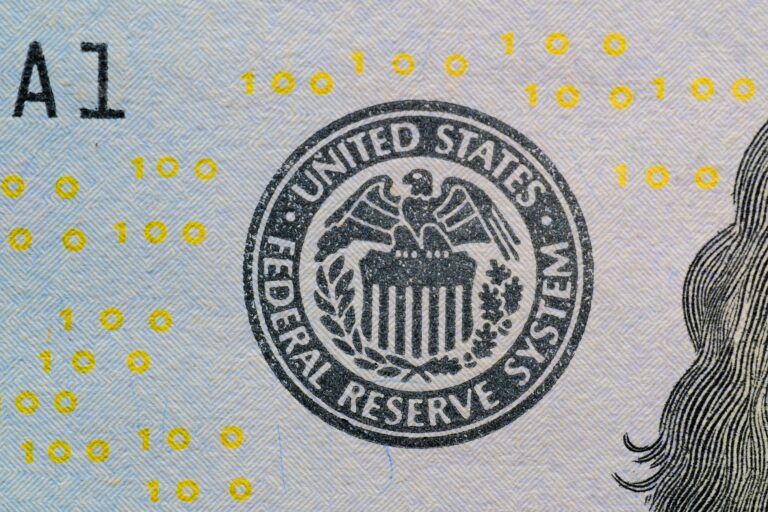The GameStop ($GME) Short Squeeze Situation Explained
The recent GameStop ($GME) short squeeze situation dominated the news cycle for a few days in January and February this year and has been a recurring topic in the business and finance news journals. Although we don’t offer stock trading nor recommend jumping into any investment based on hype and fear of missing out, what took place is deeply fascinating, so we decided to cover it on our blog.
What’s more, in a recent episode of Trading WTF, host Michael Buchbinder and guests Steve Ward and Jamie Saettele analysed the behaviour behind the frenzy.
What is GameStop?
GameStop is a US brick-and-mortar video game retailer selling primarily gaming consoles, games, peripherals and ancillary services. The company is active in the US, Canada, Australia, New Zealand and Europe. Although the company engages in e-commerce activities, one of its unique selling points was the ability to visit a store, test recently released games, and exchange used items for store credit. Considering the already fierce online competition, pandemic related lockdowns and declining footfall harmed the company’s prospects.
GameStop was having a tough time until a new investor came along in September 2020. Ryan Cohen, the founder of the world’s largest online retailer for pet supplies, Chewy, which he ultimately sold for US$3.35 billion, bought a 13% stake in GameStop, making him the largest individual shareholder. In the months that followed, Cohen and his firm RC Ventures beefed up the board of directors, introducing new key personnel with strong IT and e-commerce backgrounds.
What is a short squeeze?
A short squeeze occurs under a set of unique conditions that cause a stock or financial asset’s price to appreciate rapidly due to an imbalance of supply and demand. Stocks heavily shorted by speculators anticipating the price to fall using derivatives like options are prime to be squeezed. Since derivatives are contracts, similar to an IOU (I owe you), short interest can exceed 100% of what’s available on the market. To close a put options contract, traders need to buy-to-close to offset the short by purchasing the underlying asset.
When the short interest of an asset is high, or even exceeding 100% of supply, it can become a dangerous and volatile situation. If there is bullish momentum, the shorts start experiencing a drawdown, the more the price increases, their unrealised losses grow and more margin required to maintain their position.
When short sellers decide to close their put contracts, they also become buyers. When the bulls and the bears become buyers, it turns into a one-sided market, especially when the bulls take liquidity from the market, thus reducing the supply. In a very short space of time, the demand dramatically increases; meanwhile, the supply decreases.
How did GameStop become short squeezed?
The story begins in 2020 when a couple of long-term contrarian investors, or rather speculators, learned of positive changes occurring at GameStop and saw potential in the company’s future. The positive shift in the fundamentals was primarily thanks to Ryan Cohen’s interest in the company and aspirations to translate the company into a market segment leader that rivals Amazon, as he already achieved in the pet food segment with his former company Chewy. The company secured a revenue share deal on all digital game purchases for Xbox Series X and S for each product sold by the retailer, meaning the company is moving away from dependency on selling games burned onto discs.
On Monday the 11th of January 2021, GameStop announced that Cohen and the former Chief Marketing and Chief Financial Officers from Chewy would join the board. During this week, the price of $GME jumped 86% from US$19 to $35.50 at the closing bell on Friday.
More investors and speculators paid closer attention to this stock following this move. It became well known that the short interest in $GME exceeded 140%, and large institutional short sellers felt the pain of this price rally. The information was widely circulated on Reddit and Twitter, leading more investors to jump in with both feet to buy shares in GameStop. The situation gained international media coverage and sparked a frenzy in the stock market. Ultimately the price reached an all-time high of $508 in after-hours trading on the 28th of Jan.
For the hedge funds and other players that placed short positions on $GME, every dollar the price increased meant another dollar they could lose for each share they shorted.
Following the aggressive bullish trend on $GME and a few other stocks, including AMC Theatres ($AMC), on the 28th of January 2020, Robinhood and several other retail stock and derivatives trading brokers disabled buying more shares or increasing position sizes. The consequence of disabling trading was killing all momentum in the market, leading to a rapid decline in price.
How was social media involved?
Reddit played the centre stage of this incident. Members of the r/WallStreetBets community were credited with driving the momentum of buying stocks in GameStop. While technically true, the community is not about making political statements but rather making as much money as possible as quickly as possible, hence the name Wall Street Bets. An influx of millions of new users turned the subreddit into a movement that was never intended. The community collaborates on conducting due diligence on contrarian trading ideas. Members typically trade highly leveraged options to maximise their gains but take many risks in the process.
The impact of the GameStop short squeeze
The entire GameStop situation is clouded by controversy, and much of it has been covered on most business news channels and publications. Several high-profile US policymakers and business magnates condemned Robinhood and other broker’s actions of preventing average citizens access to an open-market. On Thursday the 18th of February, the U.S. House Financial Services Committee held an online hearing titled “Game Stopped? Who Wins When Short Sellers, Social Media, and Retail Investors Collide”
The hearing had testimonials from Vlad Tenev (Robinhood), Gabriel Plotkin (Melvin Capital), Steve Huffman (Reddit), Ken Griffin (Citadel), as well as a high profile member of the Reddit r/wallstreetbets community Keith Gill, who goes by the pseudonyms of Roaring Kitty and DFV.
The initial trade setup was not a short squeeze play but rather a long-term contrarian play based on the company’s merits. However, it somehow turned into a social justice movement involving many thousands of retail traders from across the world buying $GME shares to drive up the price and cause considerable losses to hedge funds betting on the price going down.







